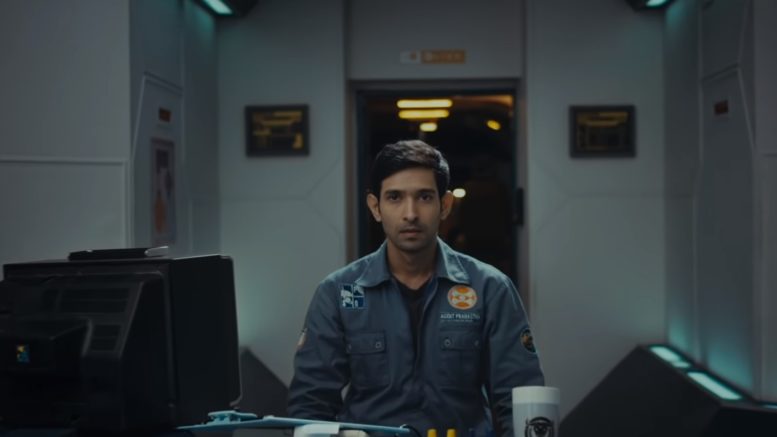Cargo begins with an ‘advertisement from earth’ featuring a Loneliness Detective (Biswapati Sarkar of TVF fame) who pitches himself as a cure for the viewer’s loneliness by being, eating, and sleeping next to them. He might as well be speaking directly to the protagonist. Prahasta, a demon (looking nothing like the ones painted in our mythology) who works in cargo transition out of a spaceship, is the poster boy of loneliness. He floats in inertia, eats in solitude, and works with monotony. The beauty of Cargo is that you can see it as a sci-fi adventure, or a superhero universe, or you can unwrap all the outer layering and see it as an emotional journey of its lead character. As Prahasta summarizes his existence in one melancholic line, “sometimes I feel the dead cargo that lands here is more alive than me.”
A Unique Blend of Sci-Fi Adventure and Emotional Journey
I saw this as a movie about people with superpowers. Not the kind of superpowers that would get you larger-than-life universe-saving fables, but superpowers that are more likely to be skills that fill certain job requirements. Prahasta, the man serving in the cargo extraction spaceship, has telekinesis; his associate has healing powers that replace the machine used for a similar activity onboard. A ground monitor of the ‘astronauts’ does not sleep, hence is the perfect person to keep a watch round the clock. He was taunted in his childhood that he would become a watchman. In a way, he has become a watchman, only for a space agency.
Unwrapping Superpowers
Another monitor can get 86.9% invisible. ‘Complete invisibility is impossible,’ he says while demonstrating his power. This is a world of imperfections. There is an all-knowing superior in the ground team who has an actual ‘third eye.’ The first cargo that we see transported onto the spaceship is called Bhavesh Joshi, a wink to the Hindi superhero movie that did not get its due upon release. Hopefully, some OTT platform picks up that character and gives it the healing and transition that it deserves.
Vikrant Massey as Prahasta plays the role to perfection in a heavily author-backed role. On the surface, he is the handler of cargo, but in many ways, he himself is the cargo. The underlying arch of this movie sees him heal, get back his memories (there is a surprising cameo here that will bring an ‘aah’ smile to your face), and is transitioned back to the ground in a new avatar. Shweta Tripathy as Yubvishka plays the catalyst in this transition but she is not only an enabler. She gets a subplot of her own in a superhero storyline of a girl coming to terms with the limitations of her superpowers.
Vikrant Massey’s Stellar Performance
The set design of the spaceship is a character by itself. It has seemingly outdated hardware running futuristic technology and could have been because of budgetary constraints, but it creates a unique look and feel of the space it occupies. It also symbolizes the limbo-like state of its longest inhabitant whose life seems to be in suspension for the past 75 years. Cargo goes to prove that budget is not a limiting factor to explore the sci-fi genre as long as the concept has novelty and is well written. Arati Kadav deserves all the accolades for making the first good inroad into the sci-fi genre from Indian cinema.

Captive of the 24 frames and admirer of the written word. If it is not on the silver screen or on the pages of a paperback, it might as well not exist.


Be the first to comment on "Cargo (Review)"